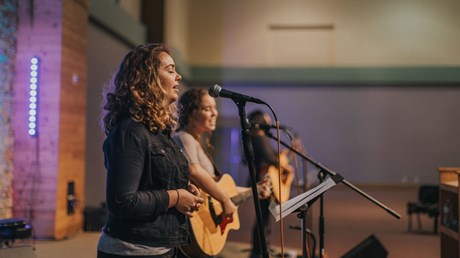More Christian music programs are accommodating students who want to play sanctuaries rather than concert halls.

For college students preparing for music ministry, new and evolving programs offer more options than ever.
Christian colleges, like institutions across higher ed, feel increasing pressure to offer specialty training for lucrative fields like business and science, sometimes with humanities programs taking cuts. At the same time, several major music programs are growing—in part out of a confidence that the student demand and job market is there. The church will always need writers, performers, leaders, and creators.
“We feel obligated to develop these resources,” said Michael Wilder, dean of the Conservatory of Music and Division of Arts and Communication at Wheaton College. “I think there’s a need for it, and there’s interest for sure.”
While most institutions have preserved their bachelor of arts in music or bachelor of music degrees as traditional routes for performance-oriented students, many students enrolling in those programs are also interested in worship leadership training. They may enter college with a calling to lead but without the same skills as those aspiring to become professional musicians.
When the conservatory introduced its worship arts certificate program in 2019 (a credential that can be added to another undergraduate major), faculty saw immediate interest from the students, many of whom were already participating in worship leadership in local churches or the school’s chapel programs.
Cedarville University, within its School of Music and Worship, offers separate degree tracks for “music” and “worship” students. Similarly, Colorado Christian University (CCU) has preserved its distinct majors in performance, education, composition, and ...
from Christianity Today Magazine
via


.gif)

.gif)
.gif)
